
How to find out what people Google, and answer their questions.
Ask Google what they asked.
It all started when I googled markdown. I typed it in, and Google started trying to guess what I was looking for. Markdown cheat sheet, perhaps, or Markdown table? Those were the things most people searched for when they typed in markdown, so Google guessed I might be looking for those more specific things as well.
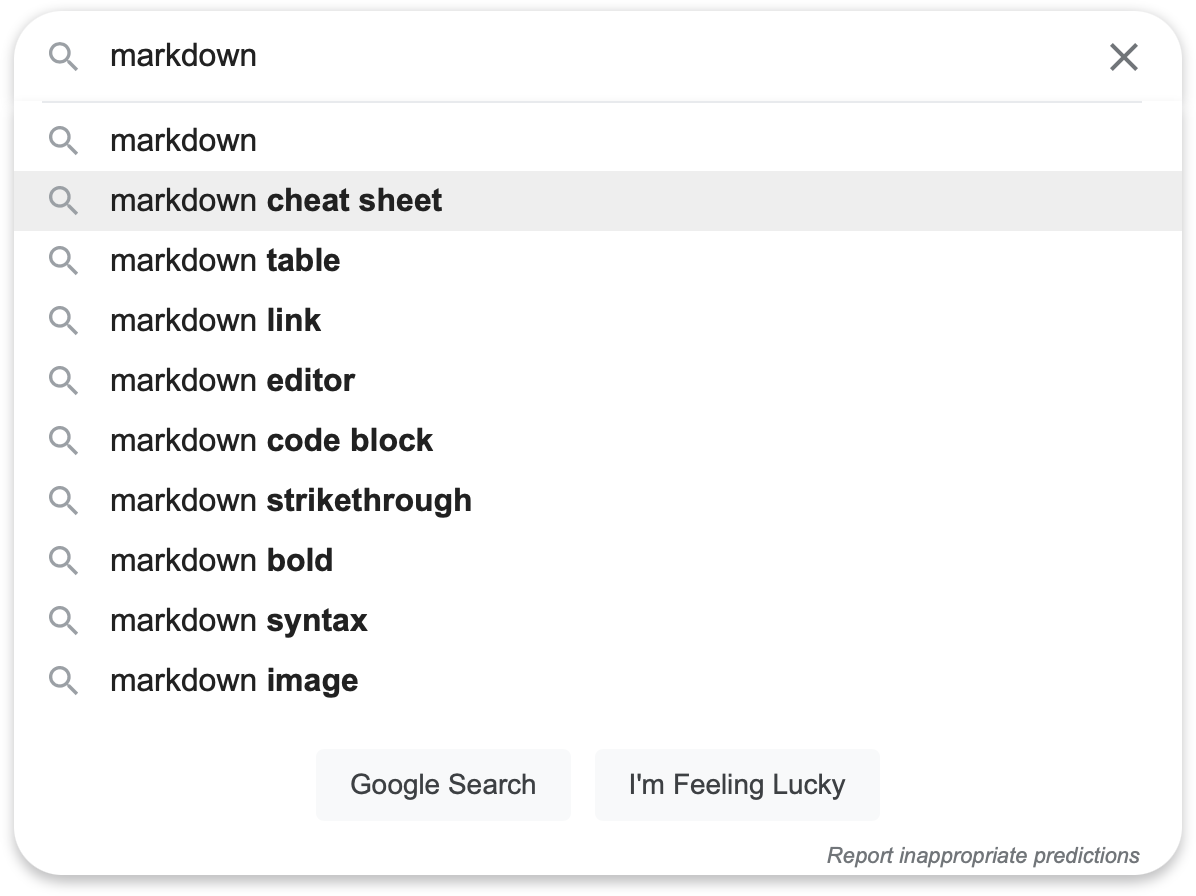
That’s it—that’s the trick. Google will tell you what people are searching for. All you have to do is ask.
You, perhaps, had the idea that you wanted to write about something, with the hopes that you’d get your article on the top of Google’s results for that word. Or maybe you wanted to sell a new product, and wondered exactly what type of product people would want.
People are already telling Google what they want. You just have to get those questions from Google.
And the data holds up. Search for markdown in Ubersuggest or Ahrefs or other SEO keyword search tools, and you’ll find a similar breakdown of search popularity. markdown’s most popular, with 18k searches a month, but markdown table and markdown cheat sheet are right behind with around fifteen thousand people searching for them each month.
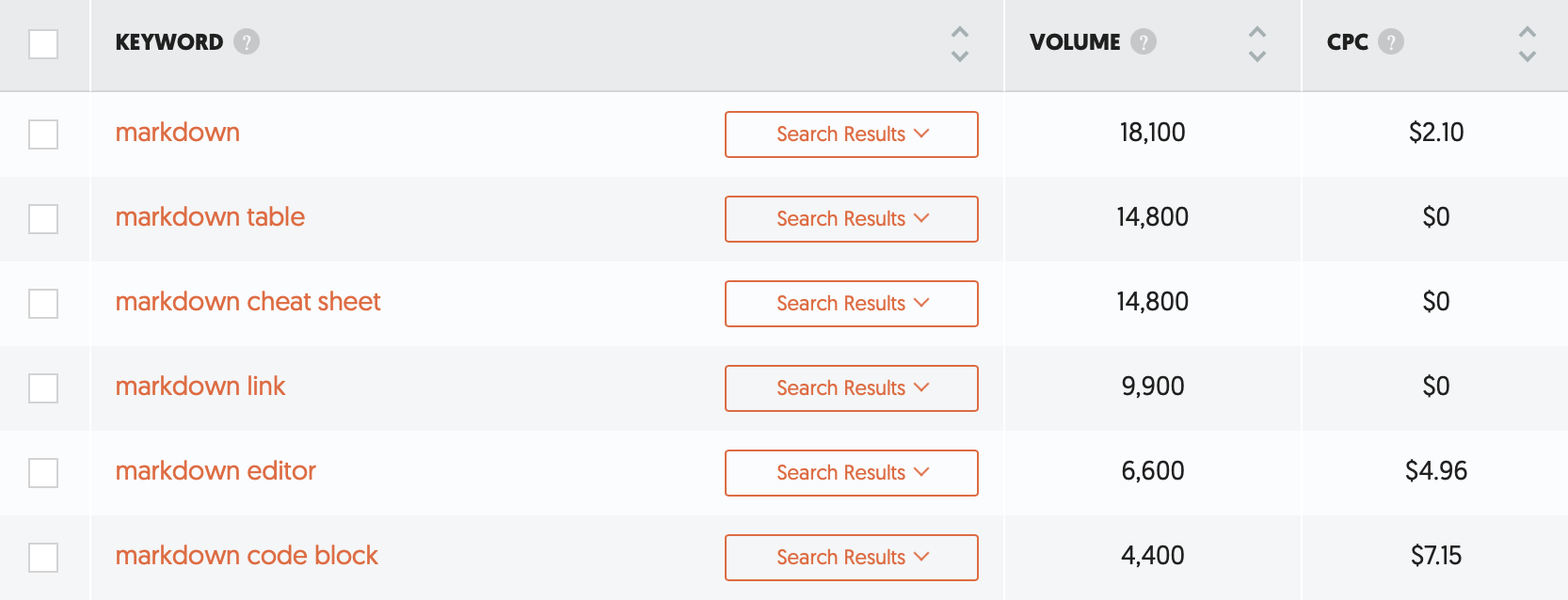
If you’re going deep on your keyword research, search keyword tools can be great to estimate search volume and how hard it’ll be to rank or how expensive it’ll be to pay to get to that top ad slot. But most of the time, you just need some extra ideas to seed into your writing. And Google’s own suggested results are enough to start.
Find everything else people search
Start out by googling your core term—but don’t rush and hit enter as normal. This time, sit back and wait for the suggested results.
Then refine them. If people are searching for markdown cheat sheet and markdown table, they must be searching for more things that start with markdown c and markdown t.
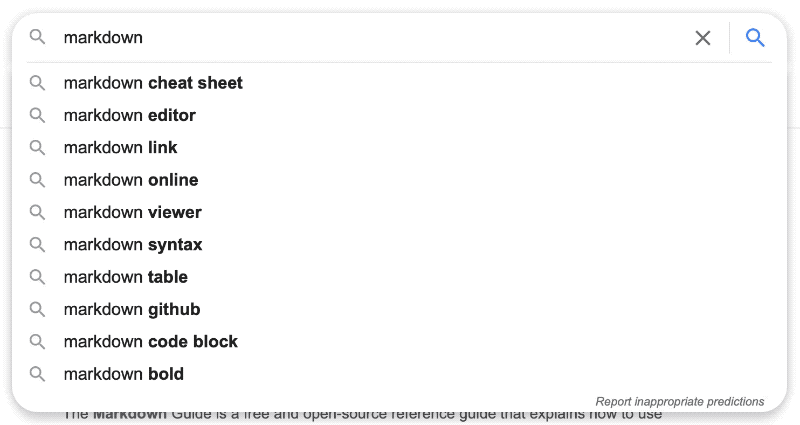
It’s tedious, but you can run through the alphabet and see the top words for every letter that people are searching for. Start at the top with a—markdown a, for this example—and work your way down to z.
Along the way, note anything that stands out, any words or phrases it might be worth digging into. Write those down. With a few minutes of work, you’ll get a fairly broad picture of what interests people most about this topic, or where they have the most trouble (with Markdown, for example, far more people are searching for tables than bold, so tables must be the thing people have a harder time remembering how to make since they keep Googling it over and again). There’s your outline for an in-depth guide, or a list of topics to cover in individual articles, or a feature request list for what an ideal tool in this space would include.
Find questions people ask
Keyword list in hand, it’s time to broaden the search again with questions. Who, why, where, what, when, how? Some people Google the direct phrase, but many more write out the full question like they’re talking to Alexa.
Google shows a few of those questions people ask most often in your search results. Click one, Google will show three more, along with a bit of the article Google thinks answers the question best.
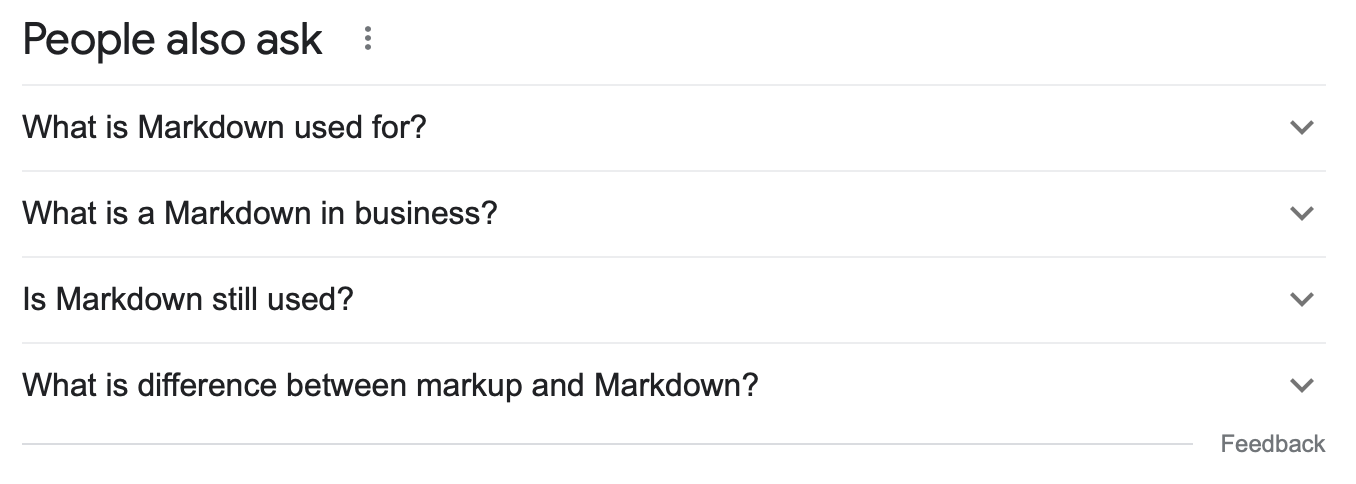
You can continue your search with a twist of the first trick, googling what and more before your keyword and noting what comes up. Or, use a tool like Answer the Public—search your keyword, and it’ll find some of the most popular questions people ask about it, along with comparisons to find other similar keywords, and phrases including the words with, in, have, and more with your keyword.
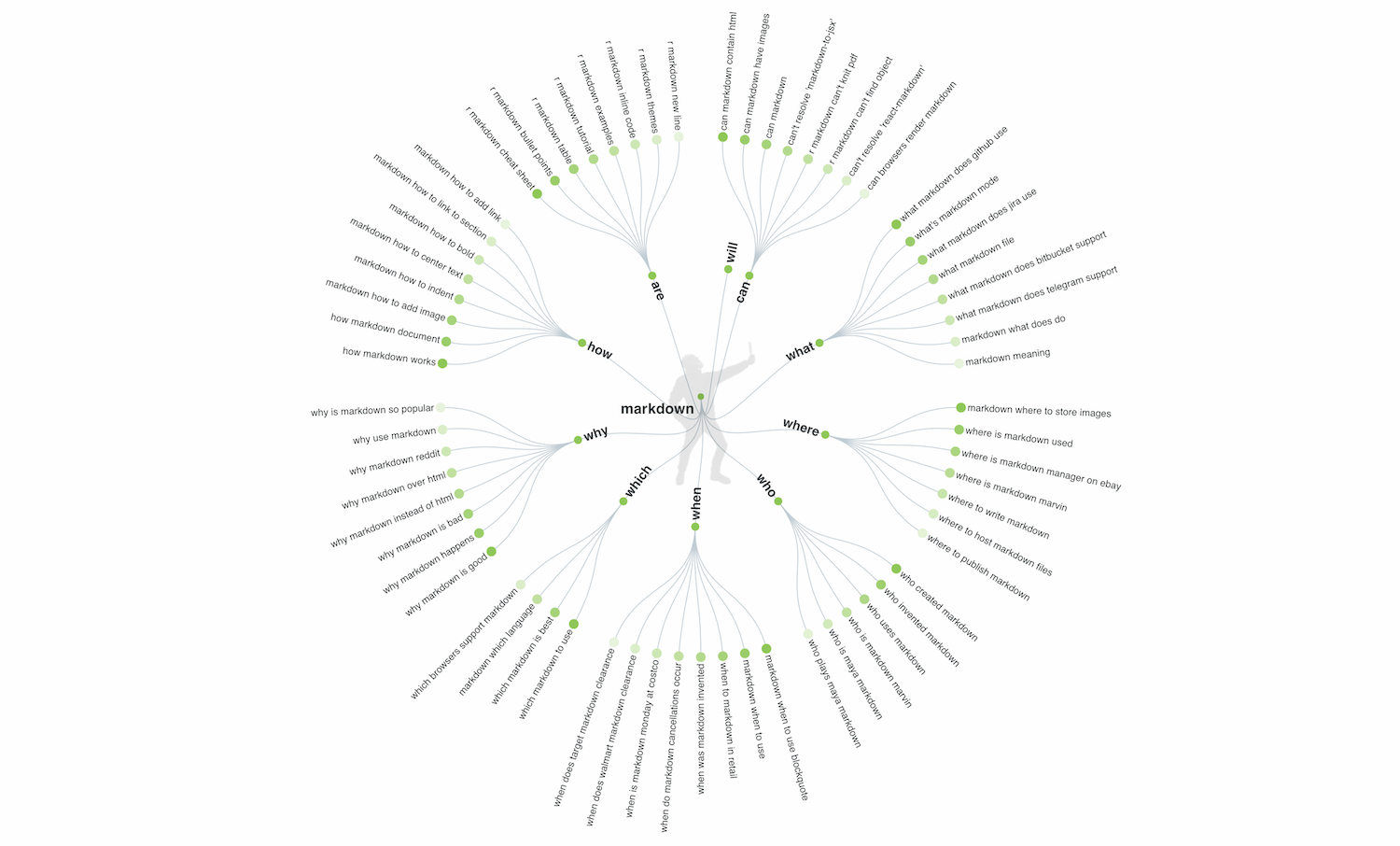
Start writing.
With that done, you should have a pretty good picture of what people are wondering about that thing you Googled, all for free using Google’s own data.
Now, scroll through a page or three of the Google search results. What’s showing up most? If there are a ton of ads, odds are it’ll be hard to rank for this topic; it’s a competitive topic, and you’ll be best to dig deeper for something a bit more under the radar. Or, if there are a ton of older articles without much info, or a bunch of question results from forums, you might be on to something that’ll be easier to cover.
Then pull out your writing app and get to it. Don’t write just for SEO—but do write for your readers and what they’re really looking for. You’ll have a better chance at getting search traffic and making something that’ll really help people at the same time.
